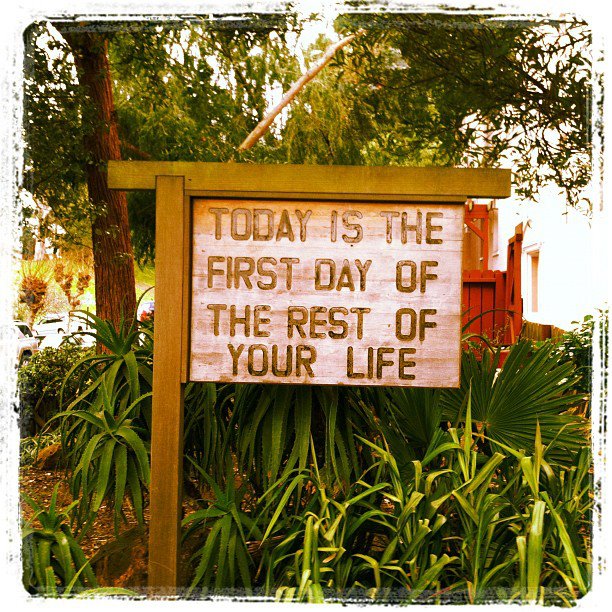How to Make Money While Traveling Long Term
Before I jump into what this is, let me begin with what this isn't. This isn't about if and how I make a full-time living as a travel blogger. It's not about how I traveled the world for free. It's not about how every day, whether work or not, is a vacation, because it isn't. The lifestyle I set up for myself as I began to travel is one that I chose to do and one that once I had a goal, I wasn't going to stop until that goal was reached, at which time I would set up a new goal, rinse, and repeat. There were some weeks that that meant working multiple jobs, as much as 80 hours in a given week, while other weeks it meant taking several days off to do nothing but travel.
What this post is about, is how travelers can tap into themselves and the resources out there to support themselves while traveling. Consider this my guide about how to make money while traveling without having to work the corner. Now let's ask and answer a few questions.
What?
What do you want to do? What can you do? While the answer to these two questions may be the same, it's not likely. While I want to be an astronaut, it's not exactly something I can do and not a skill that comes in handy when traveling, with the exception of traveling to outer space (If you're already bored, watch this guy skydive from the edge of outer space). Take some time to do a skill inventory. Write down everything that you're proficient at, as well as skills you'd like to become proficient at. And when I say everything, I mean everything. Speak English? Write it down, as you could teach it in another country. Spend quite a bit of time typing away on the computer? Then take a typing test and see how many words per minute you can type, as you may be able to do simple data entry. Remember that what may be a non-existant job in your own country may be a thriving, easy opportunity in another. And don't be above a job. For as little as a couple hundred dollars you could take a bartending class and be a traveling bartender.
Ok, ok, ok - so you might not exactly want to do data entry to support yourself while traveling, but what do you want to do? The sky is the limit, really. If there is some place you want to be or something you want to do, there's likely a way to make money from it. Travel the world on a boat, check! Think big or small for this one, as you could find yourself working aboard a cruise or even crewing on a catamaran like Kelly Wetherington did. Have an interest in scuba diving and videography? Alex combined it into a job as an underwater videographer. Be a nurse, teacher, tour guide, or flight attendant. The list goes on. Don't think of any of these as career makers, but rather as a way to let you travel the world, although that next job you take while traveling, might give you the skills for a new career you never imagined.
Who?
As in who are you going to work for? Yourself? Take a number and wait in line. Who doesn't want a location independent lifestyle? However, with each passing day it becomes more challenging and competitive. Nonetheless, for the person who really wants to travel and see the world, this may offer the biggest return, since it often means greater flexibility and higher pay. You often need little more then a minor investment (Chris Guillebeau says as little as $100 in his new book The $100 Startup), a laptop, and a reliable Internet connection (One weekend in Costa Rica saw an Internet outage throughout the town for an entire weekend). One of the biggest questions you'll have to answer upfront is how you'll be getting paid. Familiarize yourself with PayPal (And it's different account options and fees), set up an account, and order a PayPal debit card. But realize that you'll likely be charged for ATM fees with a PayPal debit card. In that case, consider transferring money from your PayPal account to your bank account (It can often take up to four business days) and get a card with no ATM fees, such as with Schwab Bank.
If you'll be working for employers in the countries you're traveling to, then keep in mind that policies and practices will differ drastically from your own country. For example, if you go to Central America with hopes of bartending, you may actually cry the first time you get paid because it's so little. Nonetheless, a smile may return to your face when you use just $1 of that to buy a beer. Don't be afraid to barter. If you're working at a hotel or restaurant, feel your employer out and consider asking for meals or accommodations as part of your compensation. Or better yet, become a house-sitter.
I can't emphasize enough the importance of networking, both online and offline. If you don't already use social media, then start. My recommendations are to begin with LinkedIn and then Twitter. Fill out your profile completely, start connecting with friends and colleagues, and ask for LinkedIn endorsements and recommendations. This will allow people to find you, as well as give you the chance to be proactive without having to carry hundreds of résumé copies with you. The advantage of using Twitter is that you can tap into a robust community of expats, bloggers, writers, and travelers just like yourself, many of whom have done, are doing, or will be doing what you are: Trying to work abroad. Meet, Plan, Go has a couple different lists of travelers on Twitter and you can also see travel lists that I've curated. Other important resources you can tap into includes connecting with expat communities, professional associations, conferences, and your alumni association.
When?
This question is more important then you might think. When you're working while traveling, it's a balancing act between work and travel. That work/life balance isn't like working at home, where you're working to live, but rather you're working to travel. As such, you don't need to work NEARLY as much as you think you do, especially if you're traveling in parts of the world that have low costs of living and traveling. For example, in many parts of the world, including much of Latin America and Southeast Asia, you can live off less then $1,000 a month. In Costa Rica I had my own apartment with a pool that was five minutes from the beach and I could live and travel around Central America for $800-$1,000 a month. Thus, I didn't need to work for any more then 10-15 hours per week.
Another model of when and how much to work was used by Rolf Potts, who wrote the book Vagabonding. Rolf would work for long periods of time teaching English, somewhat like a traditional job, but then use that money to travel for weeks or months at a time. He was doing this in countries with low costs of living. However, this means you have to be willing to travel slower at times and settle down in a destination. This often saves money in the long run, as the cost of my apartment for one month in Costa Rica was the same price that tourists were being charged for a week-long stay.
Where?
If you're going to be working your entire trip, consider doing so in a region that has similar work practices and expectations across all of its countries, which can bring consistency to your work if you're traveling around frequently. Be open to traveling slower, like I did in Central America. Many parts of the world offer transportation that is more convenient then America, which makes it easier to have a home base and travel around. I had a home base in Costa Rica, where I worked mid-week and then took long weekend trips to travel around Costa Rica and other Central America countries. Some destinations even have special work visas and programs for travelers. Australia is one such destination, offering one-year work opportunities for people between the ages of 18 and 30.
Final Note: Travel Blogging
I'm not a travel blogger. "Uhm, but Spencer, you're travel blogging right now." And yes, you're correct, but at the end of the day, I'm neither a travel writer nor a travel blogger. I'm a freelancer, or more like a travel entrepreneur. I write for magazines, websites, blogs, and so on, but also work with companies on a consulting basis. Very few travel bloggers actually make enough money exclusively from a blog to make sustainable income, yet I continue to get inquiries from eager travelers wanting to know how they can become a travel blogger to support their travels. Most of the full-time travel bloggers, are just that, working full-time, but typically with multiple income streams, such as writing e-books, designing websites, consulting, writing for other outlets, and so on. While I don't want to crush your dreams, I do want to appropriately set your expectations.
Resources:
How to Make Career-Related Connections on the Road by @MeetPlanGo
Teach English Abroad and See the World by @MeetPlanGo
Working While on a Career Break by @MeetPlanGo
Working Around the World by @llworldtour
12 of the Best Jobs that Combine Work and Travel by @bootsnall
How to Combine Long-Term Travel and Work by @glbetrottergrls
Top photo courtesy of Kirsten Alana.













